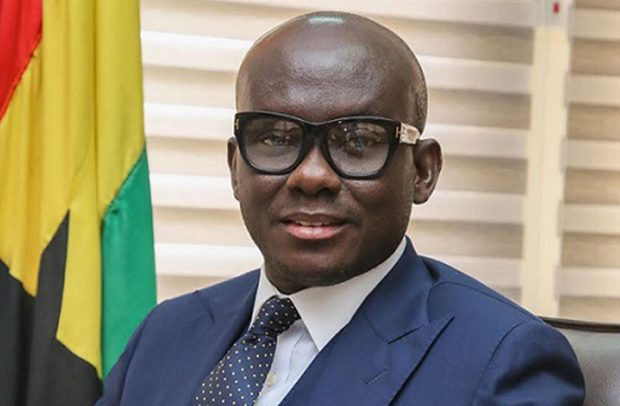The Permanent Court of Arbitration has dismissed an investor-state arbitration case brought against the Government of Ghana by Beijing Everyway Traffic & Lighting Technology Company Limited.
This came after the court, during the final award date of January 30, 2023, upheld the preliminary objection of the Attorney-General and Minister for Justice, Godfred Yeboah Dame, who represented Ghana as counsel.
Other members of Ghana’s legal team are Diana Asonaba-Dapaah, Deputy Attorney-General and Minister for Justice; Helen Akpene Awo Ziwu, Solicitor-General; Dr. Sylvia Adusu, Grace Mbrokoh Ewoal and Ms. Yvonne Bannerman, all State Attorneys.
The claimant company had sought an award of damages in the amount of “not less than US$55 million” under a treaty between China and Ghana concerning the Encouragement and Reciprocal Protection of Investments signed on October 12, 1989.
The Accra Intelligent Traffic Management System (AITMS) project was the subject of the dispute that prompted the arbitration procedures.
The AITMS project is one of the12 infrastructure projects that were to be developed with the help of a term loan facility that Ghana and the China Development Bank signed on December 16, 2011.
Around April 2012, the claimant company was awarded the AITMS project, while the EPIC contract was subsequently signed by the claimant and the Ministry of Roads and Highways on September 17, 2012.
Under the EPIC contract, Beijing Everyway agreed to supply equipment and provide technical services to Ghana in respect of the planning, design, construction, supervision, operation and training for the AITMS project in Accra.
The parties agreed to a contract price of US$100 million and an advance payment of 30%.
Parliament authorised the EPIC contract by resolution on December 22, 2018, which contract was set to begin on August 26, 2019, and the work was expected to be finished in 24 calendar months.
The claimant said a six-member delegation from the Ministry of Roads and Highways paid a technical visit to the claimant’s plant and warehouses in China between November 12 and November 15 to examine the production and inventory of the equipment for the AITMS project.
The Ghanaian group viewed, examined, and counted the manufacturing equipment during the visit before it was shipped to Ghana.
It said the Department of Urban Roads in January 2020 affirmed that Beijing Everyway could ship the machinery examined by the technical team in November 2019 to Ghana.
The Department of Urban Roads of Ghana granted Everyway an onsite work permit for the AITMS project on January 15, 2020.
This permit covers the installation of new traffic signals, the construction of a communication network, and general civil work at intersections in Accra that are both signalised and non-signalised.
On February 3, 2020, Everyway reported to the Department of Urban Roads of Ghana that it had loaded 19 containers of equipment for shipment for the AITMS project and asked it to prepare for import customs clearance in Ghana.
Rebuttal
The Attorney-General, Godfred Yeboah Dame, argued that the provision of Article 10(1) of the China-Ghana Agreement limits the Tribunal’s jurisdiction to only the determination of the quantum or amount of expropriation, and not the determination of the primary issue whether there has been expropriation at all, at a hearing conducted virtually on March 22, 2022.
Therefore, the Tribunal lacked the authority to decide whether Ghana had expropriated the claimant’s investment in the AITMS project in violation of Article 4 of the Treaty or whether it had violated its contractual obligations to the claimant under the EPIC contract in violation of the Umbrella Clause obligations that were applicable to this arbitration under Article 3(2) of the Treaty.
The Attorney-General further contended that Ghanaian courts, not an arbitral tribunal, have jurisdiction over the issue of the legality of a purported expropriation based on Articles 4(1), 4(3), and 10(5) of the Treaty.
Therefore, an investor seeking expropriation under the Treaty must do so “through domestic legal procedure” and in accordance with Ghanaian law.


